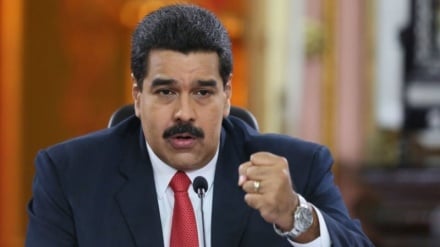Iran’s exports to Oman increase / British Pound’s value falls
-

Iran’s exports to Oman increase / British Pound’s value falls
Pars Today – In the first five months of the Iranian year 1404 (March–August 2025), Iran’s exports to Oman increased by 16 percent.
According to Pars Today, an analysis of trade relations between Iran and Oman during this period shows that bilateral trade followed an upward trend, with total exchanges rising by 11 percent compared to the previous year to more than $1.153 billion. Iran’s non-oil exports to Oman reached $780 million, marking a 16 percent increase and serving as the main driver of trade growth. The outlook for Iran-Oman trade in the second half of 1404 is considered positive, with annual trade volume expected to surpass $2.5 billion.
Iran exports 600 tons of honey
In the first six months of 1404, Iran exported nearly 600 tons of natural honey to various countries, earning over $2 million in foreign revenue. Iraq was the largest buyer, purchasing 68 percent of Iran’s exported honey. Other export destinations included the UAE, Pakistan, Malaysia, Iraq, Bahrain, Jordan, Kenya, Qatar, Azerbaijan, Kuwait, Tajikistan, and Afghanistan.
Protests at 20 U.S. airports
Meanwhile, as the U.S. federal government shutdown continues, around 13,000 air traffic control employees missed their scheduled paychecks, prompting protests at more than 20 airports nationwide. The ongoing shutdown is just one week away from breaking the record for the longest government shutdown in U.S. history, previously set in winter 2019.
Russian oil giant begins selling off foreign assets
One of Russia’s major energy companies, Lukoil, announced plans to sell its foreign assets following the latest round of Western sanctions. The sanctions—announced by U.S. President Donald Trump—targeted Lukoil and another major Russian oil producer, Rosneft. Similar restrictions had previously been imposed by the United Kingdom. The announcement of these sanctions led to a rise in global oil prices.
British Pound falls to two-year low
The value of the British pound dropped to its lowest level in two years amid growing concerns over the government’s financial situation and a downgraded productivity forecast by the Office for Budget Responsibility (OBR). The decline has intensified pressure to close the public finance gap ahead of the upcoming budget proposal.
According to British financial media on Wednesday, the pound’s exchange rate fell 0.4 percent, reaching €1.13 and $1.32 against the euro and the U.S. dollar, respectively. The fall followed the OBR’s decision to cut its productivity growth forecast by 0.3 percent, signaling greater strain on public finances and a widening fiscal deficit.


